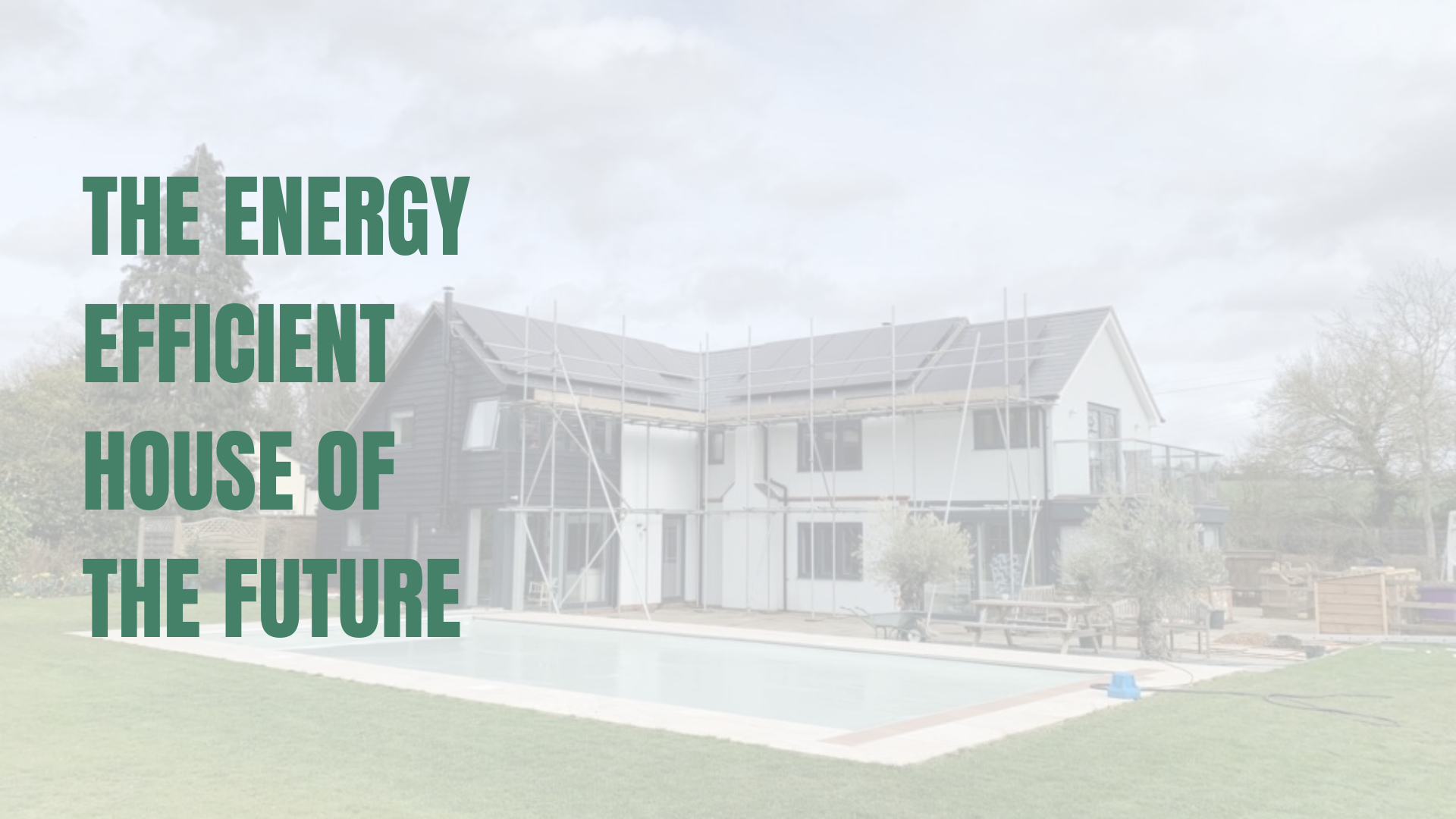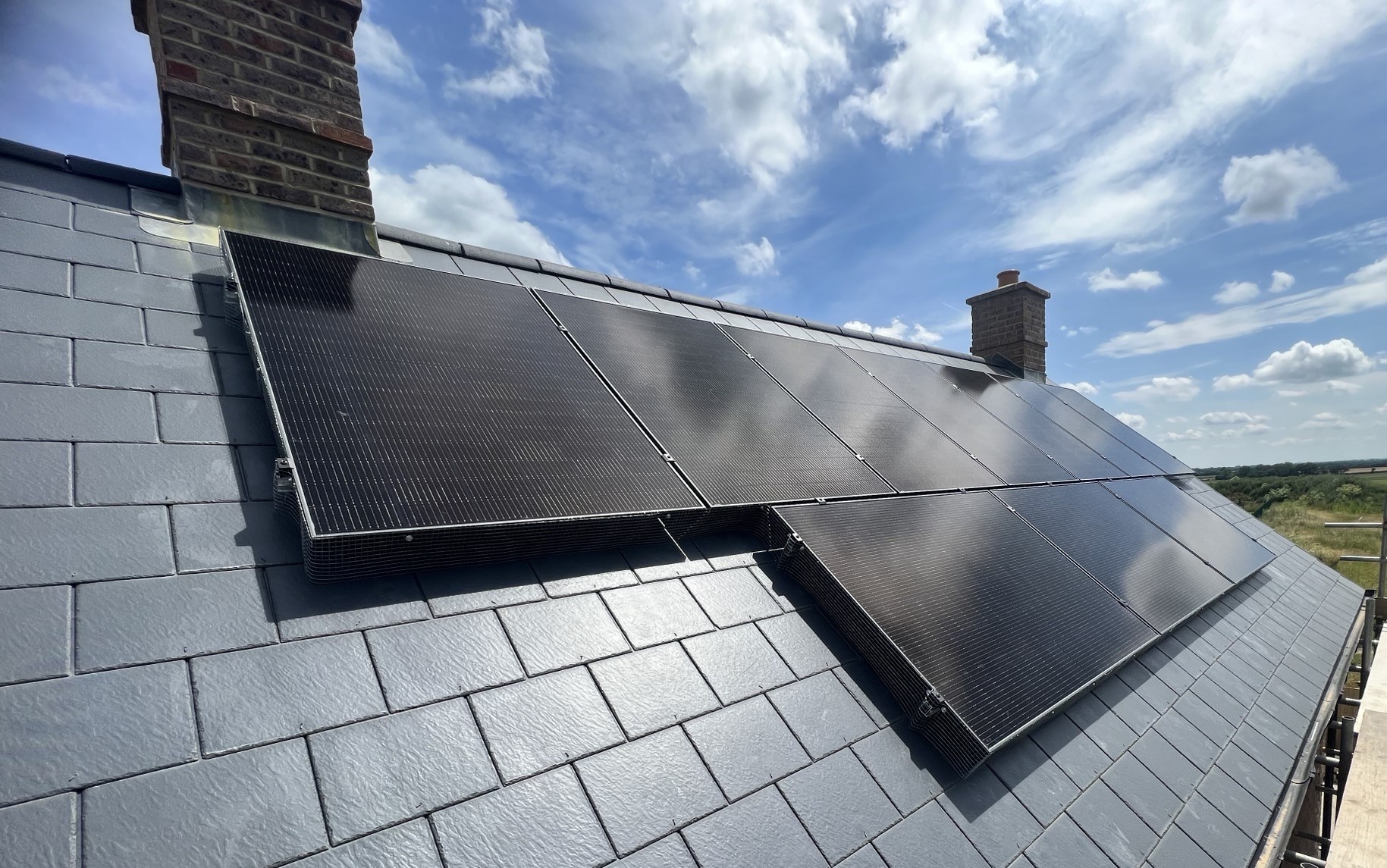As the UK moves towards its 2050 Net Zero target, the house of the future may not look like the science fiction sketches we’ve become used to. Most homes will retain their current layout, but will include energy efficient upgrades that dramatically reduce energy waste and carbon emissions.
Here’s everything you need to know about creating an energy efficient home that saves money and protects the environment.
How Do We Achieve an Energy Efficient Home?
The key to energy efficiency is reducing reliance on fossil fuels like gas and oil. That means switching to electric powered heating and appliances, then onto renewable energy such as solar, wind or ground energy, to power your heating and everyday electricity needs.
For homeowners, solar is the most accessible and affordable option. Generating your own free electricity through solar panels and storing it in battery storage systems can dramatically reduce energy bills and work alongside smart energy tariffs for maximum efficiency.
The Energy Efficient House of the Future: Key Features
- Solar panels for clean, renewable electricity
- Battery storage to maximise solar energy use
- Heat pumps for electric heating
- Underfloor heating or larger radiators to optimise heat pump performance
- EV charging for electric vehicles
- Full insulation in walls, floors and the roof
- Double or triple glazing to minimise heat loss
- Draught-proofing to seal leaks
- Ventilation systems for air quality and reduced heat loss
- Smart heating controls, adjusting temperatures efficiently
- Electric cooking appliances
New build homes are likely to have many of these included by default due to the Future Homes Standard, but older homes can be upgraded with retrofit solutions.
How Energy Efficient Upgrades Work Together
Individual upgrades can help lower bills, but the real savings come when all improvements complement one another and work as a system.
The Power Zone
- Solar panels generate clean electricity for your home
- Battery storage stores excess electricity
- EV chargers use solar power to charge vehicles
- Heat pumps and water heaters draw energy from solar panels and batteries
- Smart tariffs optimise when electricity is imported from the grid
Excess electricity can even be exported back to the grid, generating additional savings on your energy bill.
The Heating Zone
- Heat pumps distribute warmth via underfloor heating or radiators
- Insulation and draught-proofing minimise wasted energy
- Smart heating controls provide personalised comfort
- Ventilation systems maintain air quality without heat loss
Together these systems can create a home that is warm, efficient and eco-friendly, while saving you money on your electricity bills and giving you back control over your power.
Energy Bills and Savings
A fully upgraded energy efficient home could get energy bills as low as £36 per month, compared to a standard gas-fuelled home with monthly bills exceeding £115 per month.
Carbon savings are significant too, roughly 3,766 kg of CO₂ per year, equivalent to seven round trips to Australia. As renewable technology improves, these savings are only set to grow.
Funding Energy Efficient Home Upgrades
Financial support is available for many energy efficient upgrades. Costs can vary depending on property size and type, material and labour costs, building construction, property age. Grants, loans and government schemes can help make these improvements more affordable.
How to Start Your Energy Efficient Home Journey
Upgrading your home is a major investment. Start by assessing your budget and priority upgrades. Professional advice from a qualified retrofit assessor or architect is essential to help you make informed decisions on what is priority and most beneficial for your property. Tools like energy calculators, EPC (Energy Performance Certificate) ratings and recommendations can help you determine which improvements are best for your home.
Heat pumps or low-carbon heating systems and solar panels are key upgrades with significant financial savings. Battery storage, insulation and draught-proofing all complement your heat pump and solar panels. By starting with insulation and heating you can maximise comfort and energy savings, then put the financial savings into less urgent energy efficiency upgrades like advanced ventilation, insulation and draught-proofing.
A Bright, Sustainable Future
The homes of the future will be comfortable, energy efficient and low-carbon. Powered by clean, renewable energy from the sun and cheaper to run. Upgrading your home is a step towards a greener, healthier and more affordable future, while also securing long term savings and energy independence for you and your family.
Ready to Start Your Solar Journey?
Contact SolarTherm UK today for a free no obligation quote and design, tailored to your property, usage and future energy needs. No hard sell, just honest, expert advice. With over 15 years experience in the renewable energy industry, SolarTherm UK will handle your solar upgrade from initial enquiry to installation to long term first class aftercare with professionalism and expertise.
Your home. Your energy. Your future.





